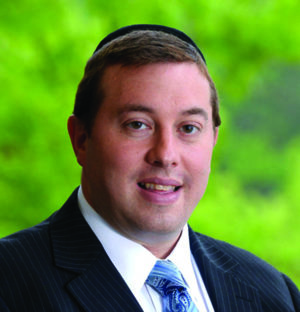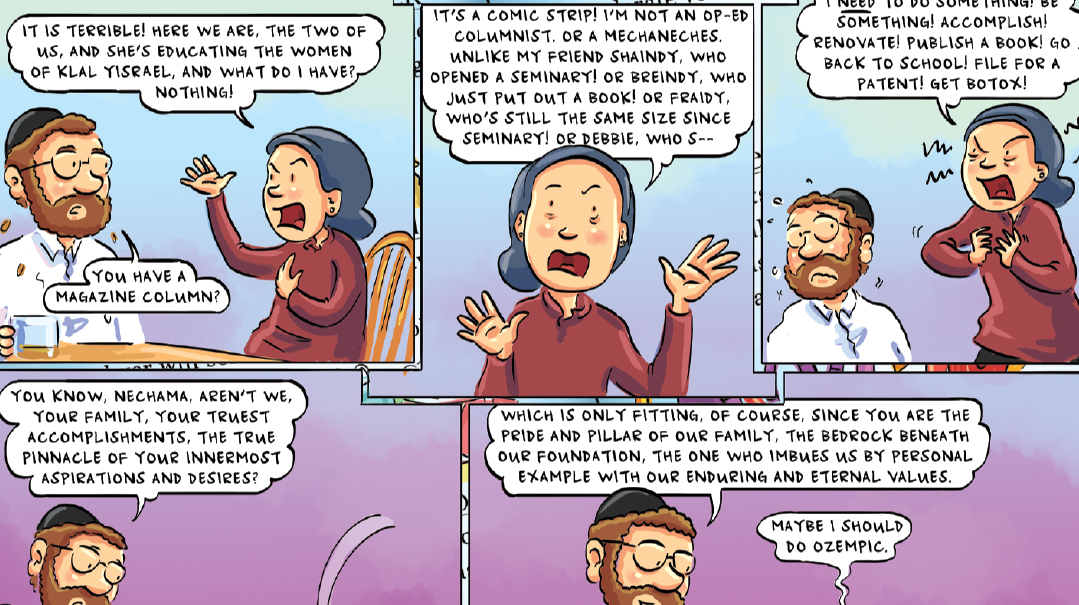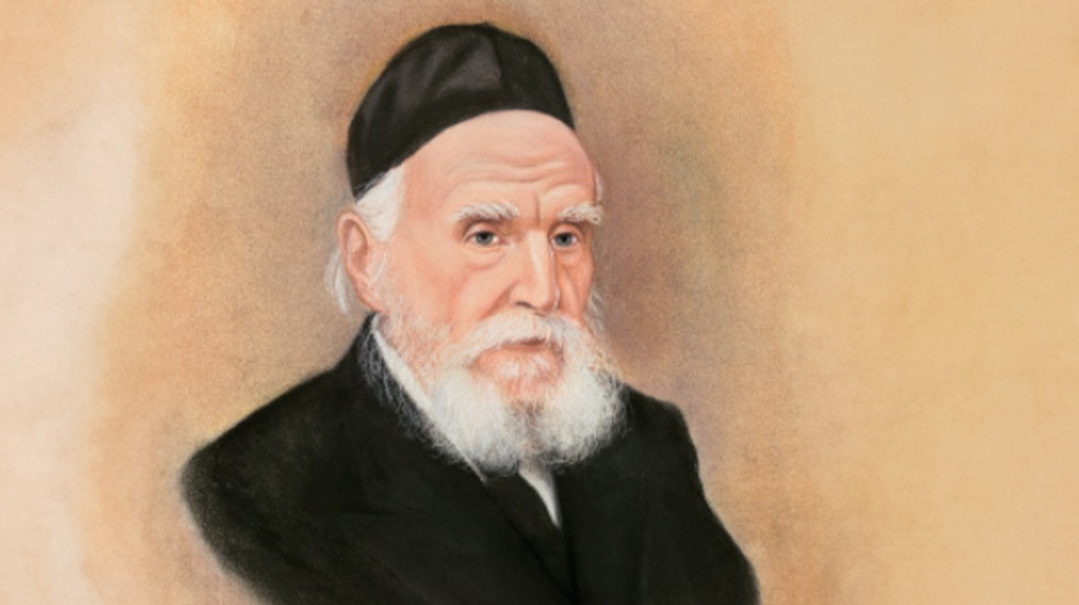What Would You Give Up?

How much is a year in yeshivah worth to you?
How much is a year in yeshivah worth to you? How much would you give up in order to learn and grow, day after day, week after week, month after month? What would you be willing to pay to go to yeshivah, even if you had never gone before? Even if your family and social circle weren’t behind your decision?
Now let’s reframe the question. What would you be willing to give up in order to influence someone to go to yeshivah? Would you push off an amazing real estate or health care opportunity? What would your family and friends say?
Many of us who grow up frum never have to grapple with these types of questions. Learning in yeshivah is simply assumed and encouraged. If you didn’t have the funds for tuition, you could probably raise the money or find a sponsor to cover the costs. And if becoming a rebbi or maggid shiur isn’t for you, the next step is to find a great parnassah that will help you pay for a frum lifestyle. This is pretty much the extent of the life choices we face.
Some of our fellow Jews face a different range of life choices.
I once had a talmid — we’ll call him Sam — who grew up in a very secular household. So secular, in fact, that he was not discouraged from dating a non-Jew. In high school he joined the ROTC, which meant the US Army would pay for his college education at Rutgers University in New Jersey. He volunteered and got some basic training, and would then be obligated to enlist in the Army for a number of years. The benefits of signing up for this are obvious; the financial assistance is huge, and the Army also teaches great life skills. You develop self-discipline, gain a sense of identity, learn how to work with a team, and much more.
Sam joined our Meor Jewish Xperience trip to Israel, during which he became inspired through the various shiurim, Shabbosim, and inspirational speakers. He decided to get more involved back on campus and learned b’chavrusa with some of our staff members, and attended shabbatons and more trips.
Sam was the Rutgers University ROTC’s number one recruit. He is a natural leader and had excellent grades, so they had high hopes for him. We did too, and he put his skills to good use, inspiring other students to increase their Jewish commitment and attend our shiurim on campus.
I vividly recall one Shabbos on a trip to Poland. We were emotionally and physically exhausted from visiting the concentration camps, old shuls, and communities where our grandparents had grown up. Our group was sitting there in the Temple Shul in Krakow, but despite the chazzan’s best efforts to get everyone going with a Carlebach Kabbalas Shabbos, we were too spent to move.
Not Sam. He roused everyone up and before you knew it, four busloads of Meor Poland students from all over the US were jumping, dancing, and davening just as the chassidim of Krakow might have done a century ago.
As his sophomore year in college drew to a close, Sam had to make a decision. He had an obligation to attend the Army. But he also knew that he needed to go to yeshivah if he wanted to live the life that he now wanted. He asked the Army if he could study in yeshivah and become a US Army chaplain afterwards, but they refused.
What to do...?
He decided that he should attend yeshivah, even if it meant forgoing the Army’s generous financial assistance and assuming the entire debt of his college tuition. It was an act of real mesirus nefesh, one that most of us can only dream of making.
Sam has had tremendous siyata d’Shmaya ever since. He inspired his friends in yeshivah, his family, and those around him. He married an eishes chayil who is a leader of women. They have a beautiful mishpachah and are young leaders in their community.
So I ask you, what would you give up? What would you give up to become one of the few in our community to inspire someone like Sam? This isn’t a theoretical question, it’s quite real. You see, there are hundreds and thousands of Sams and Samanthas out there, whose bubbies and zeidies stood with our bubbies and zeidies 3,334 years ago at Har Sinai. They don’t yet know why they should care about Torah or Yiddishkeit, but each year, many hundreds of them figure it out and go to yeshivah or seminary. And most of the time, it’s because they had someone who showed them how and why they should reconnect with their soul.
I have a cousin who did not see himself as a natural mekarev; he grew up in a very frum home and was not exposed to too much. He wasn’t the most outgoing or loudest guy in the world, nor did he have an answer to every philosophical question. Nevertheless, he and his wife made the momentous decision to dedicate two years to Klal Yisrael, and they influenced a number of secular students to live Torah lives.
I knew one of the guys my cousin helped get to yeshivah. This young man eventually ended up in a great kollel, is a real ben Torah, and has a wonderful mishpachah.
Some of these men and women who teach Torah to our secular brethren also had dreams of making money and supporting their families and living “normal lives.” And I know about ten of them who gave a year or three to Klal Yisrael and now are quite wealthy. One owns a bank, another a major tech company, a third does really well in finance. I have no idea whether it’s because the crucial interpersonal and organizational skills you learn in kiruv are transferable to almost every other life experience or work environment you will encounter, or whether they simply merited a brachah from Hashem.
And no, not every former mekarev makes it big. Like everyone else, some really struggle. There is no way to tell.
Perhaps the greatest wealth in the world is a picture of a talmid and his spouse and their children. The picture is hidden away in your desk drawer, and you take it out and smile and maybe show it to your wife and kids, because you know that you and they had a part in bringing that beautiful Torah mishpachah into the world. There is no greater osher than that.
Yes, you have to get a good job to support your family. But likely you can give a year or two, or even just an hour a week. And even if you aren’t the most outgoing type, and you wouldn’t know what to say if someone asked you a question (“Hey, that’s a great question, let’s ask a rabbi and find out together”), you are likely to change the course of at least one person’s life, someone who might go on to build a Torah home just because of you.
But on the other hand, you want to start your career now, and everyone else is making a lot of money, and life is so expensive, and you have a million things going on each week, and who knows if you’ll really succeed, so you can’t push your career off for two more years. Can you?
But look at what Sam gave up — and look at what he gained.
So I ask you again: What are you willing to give up?
And then ask yourself, “How much will I gain?”
Rabbi Meir Goldberg is the director of Meor Jewish Xperience at New York and New Jersey college campuses.
(Originally featured in Mishpacha, Issue 922)
Oops! We could not locate your form.







